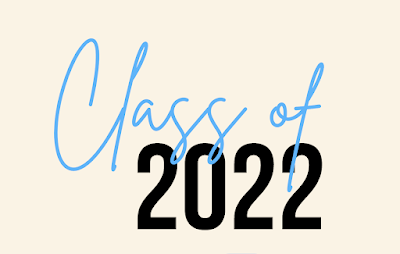I’ve never had a school year when I was unsure we would make it. This year I wondered how we would come back, step inside, breathe together, learn together. But look at us now. Here we are, still in-person. Still here. Still breathing. Together. I’m proud of you. I’m proud of us. It hasn’t been easy.
I’ve cried more this year than I have during any other school year, and not for the usual reasons. Like my other years of teaching, my emotions have often simmered to the surface, ready to bubble over, but this year, so many of my tears have been tears of apology.
I’m sorry for all the ways we have failed you. I’m sorry that two years ago we sent you home for two weeks and kept you home for over a year. I’m sorry we couldn’t figure out faster that we could come back safely with masks and testing protocols in place. I’m sorry we let you languish in silence and anonymity, that we didn’t support you and your families more, and that you might still feel alone.
I’m sorry we reopened our doors and acted like things were the same, that we didn’t give you the time and space to process it all. I’m sorry we didn’t give you the time you might have needed to heal, and instead we dropped you right back into systems that don’t work for so many of us.
I’m genuinely sorry, but sometimes apologies aren’t enough. Reparations are defined as making amends for a wrong one has done, or the act of repairing something. When my father was your age, a young teenager during World War II, he was incarcerated along with his entire family because of his Japanese Ancestry. In 1992, he was paid reparations and offered an apology. It didn’t heal the trauma of our family’s history or forgive our country’s actions, but it was a step toward justice.
In the shadow of these unprecedented times, we need to do more than just apologize. We need to repair. Indian author Arundhati Roy says, “How has the United States survived it’s terrible past and emerged smelling so sweet? Not by owning up to it, not by making reparations, not by apologizing to Black Americans or native Americans, and certainly not by changing its ways.”
There is much we need to repair in our nation, in our cities, our families, our schools, so let us start here. Let’s repair the relationships we have with one another, by apologizing for the times we’ve done wrong, by showing gratitude and thanking those around us for sharing this space with us, let’s offer kindness to one another with a greeting, a pleasantry, a wave or a smile.
So before you head off to high school, I hope you will take a few last moments with the people you came back to school with: these friends and classmates, these teachers and staff. I hope you can offer a smile, a greeting, a thank you because even if these relationships have felt the strain of these uncertain times, of the trauma and grief we are all still carrying, we have shared this experience together.
And when you start at your new schools in the fall, I hope you will show up to school ready and willing to learn even though these same schools may have let you down. I hope you will be there for one another, that you will take the risk of learning, of building new friendships, and that you will heal and repair. Please forgive yourself and others, remember kindness, and see how if we start reparations here and now, even on this seemingly small scale, we might open up new possibilities for repairing a broken world.
American author Maya Angelou says, “People will forget what you said. People will forget what you did, but people will never forget the way they made you feel.” I will remember you, Class of 2022, as the ones who helped me step back into the world, who made me feel brave even though it was tough, and optimistic even through despair. Because we’ve started making reparations already. We’ve spent these months getting to work on a world that is in serious need of repair and we are moving forward. And as Beyonce says, “If you feel insignificant, you better think again / Better wake up because you’re part of something way bigger / You’re part of something way bigger.”
Click here to read graduation speeches for other Emerson classes.

No comments:
Post a Comment